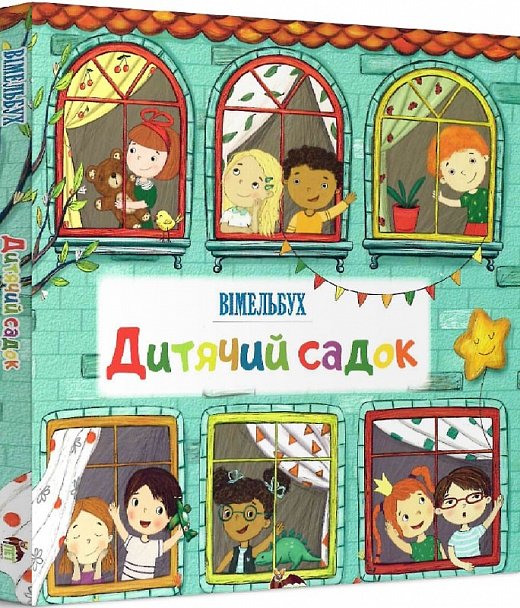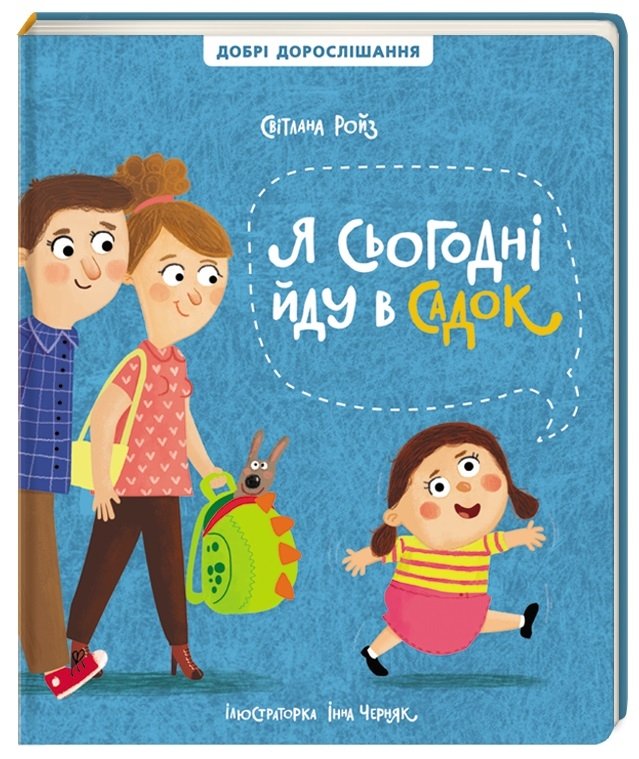My experience concerns three private nurseries in Sykhiv (area in Lviv, Ukraine) (trial days for two and adaptation in one), the best ones, where my eye, trained by ten years in the field of service, relentlessly collected the details, embroidering a picture of the state of affairs. What to pay attention to when choosing a nursery (or even not choosing, because you often don’t have a choice), what is the situation with nurseries in Ukraine and what are the opportunities for growth.
Adaptation

This is a process involving at least three people: a nanny, a caregiver and a child. Each child has their own level of readiness for nursery, it depends on many factors: age, willingness to separate from parents, the need for socialization and so on. The child needs time to adapt to new places, people, become attached to new caregiver, trust him, and let go of mom or dad.
What I’ve observed:
- there are not enough nannies/educators per capita, they are barely enough to escort children to the toilet, change clothes, wipe noses, respectively, children lack attention, which complicates the process of attachment, adaptation; the ideal proportion is 1 adult for 3-5 children, 1-2 people should be fully engaged in the physical side of care: changing clothes, toilet, food, wiping noses, etc.
- parents are nervous and press their children, especially like this: you are already a big boy; stop, no, this is a little boy, in an unfamiliar environment, let him be aittle one, he will still have time to get big, resistance from parents creates even greater resistance in the child; and the boys weep, both big and small. And that’s okay.
- people not in the right place:
– poorly selected staff (nursery primarily means staff – the child must be surrounded by the right adults);
– flattery and lies (if the staff smiles politely and tells me what I want to hear, there is no guarantee that my child will not be hit somewhere in the toilet so that no one can see – this is the level of a person).
Atmosphere
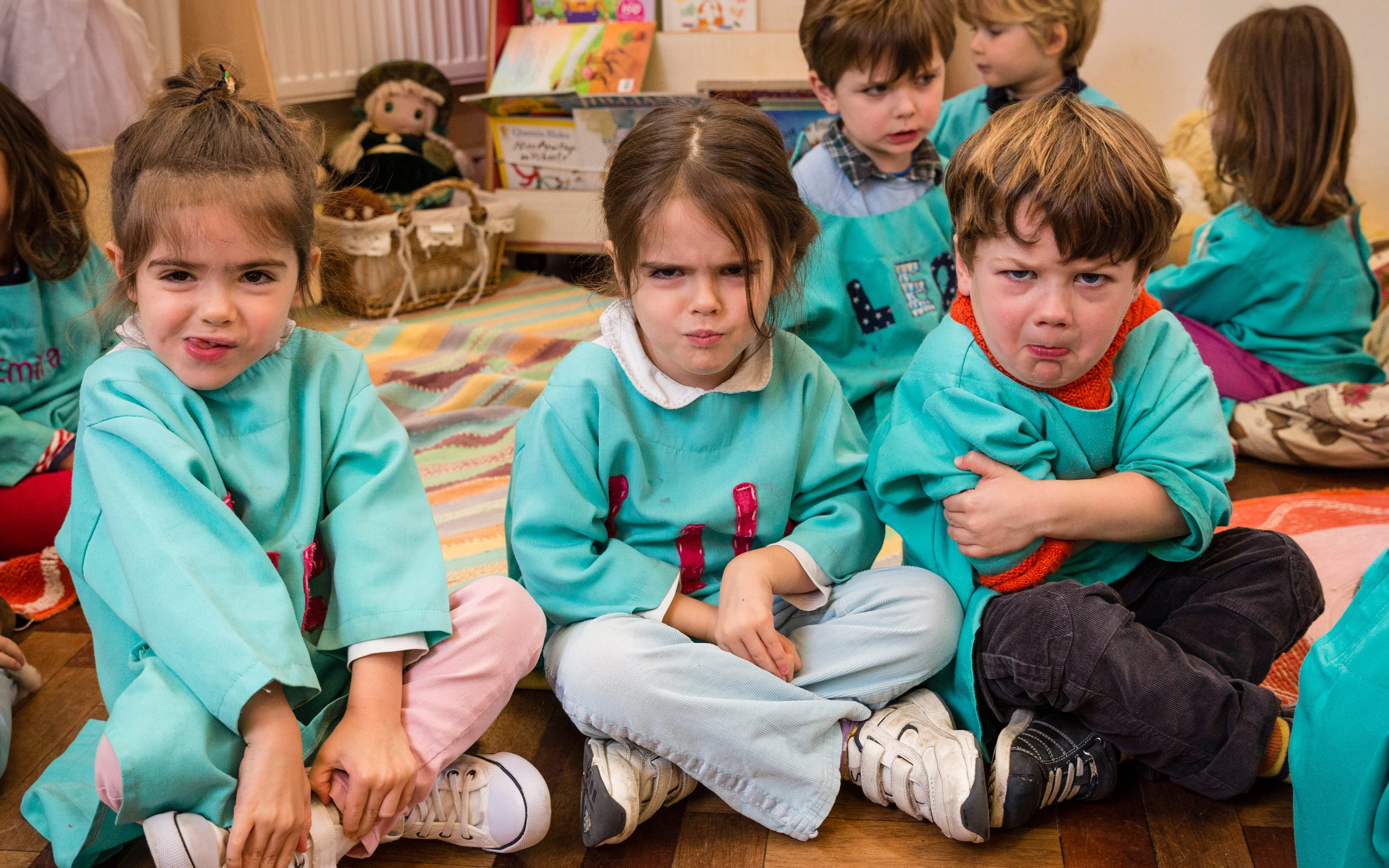
Regulation kills.
Clearly, the child needs guidelines such as order and approximate time of actions: undress, toilet, wash your hands, eat, wash your hands, play, walk, sleep, etc. But too often a change of activity is traumatic, children do not have time to react, it resembles a short circuit in the brain. The child’s brain will have difficulties with switching tasks up to 12. And that’s okay.
Orders kills.
Sit, stand, get up, eat, play, do like everyone else. Free play – that’s what you probably need at the age of 4. Maximum freedom of choice in the name of developing a healthy personality. Healthy involvement in joint activities: join, because it’s fun, join if you want.
The hustle and bustle kills.
Fast, fast, run, do this, do that, hurry somewhere all the time. We are a generation of neurotics, maybe it’s worth stopping right now?
Violence kills.
Why are you crying? I said don’t run! It’s not allowed!
A child doesn’t cry for no reason. The child needs movement. The child needs respect and explanation. The child copies the adults.
Noise kills.
Of course, the nursery is quite noisy: someone is crying, someone is laughing, someone is fighting for a toy, someone is dromdroomdrooming like a tractor. But nurseries abuse both the music itself and its volume, which leads to excessive sensory overexcitation.
Health
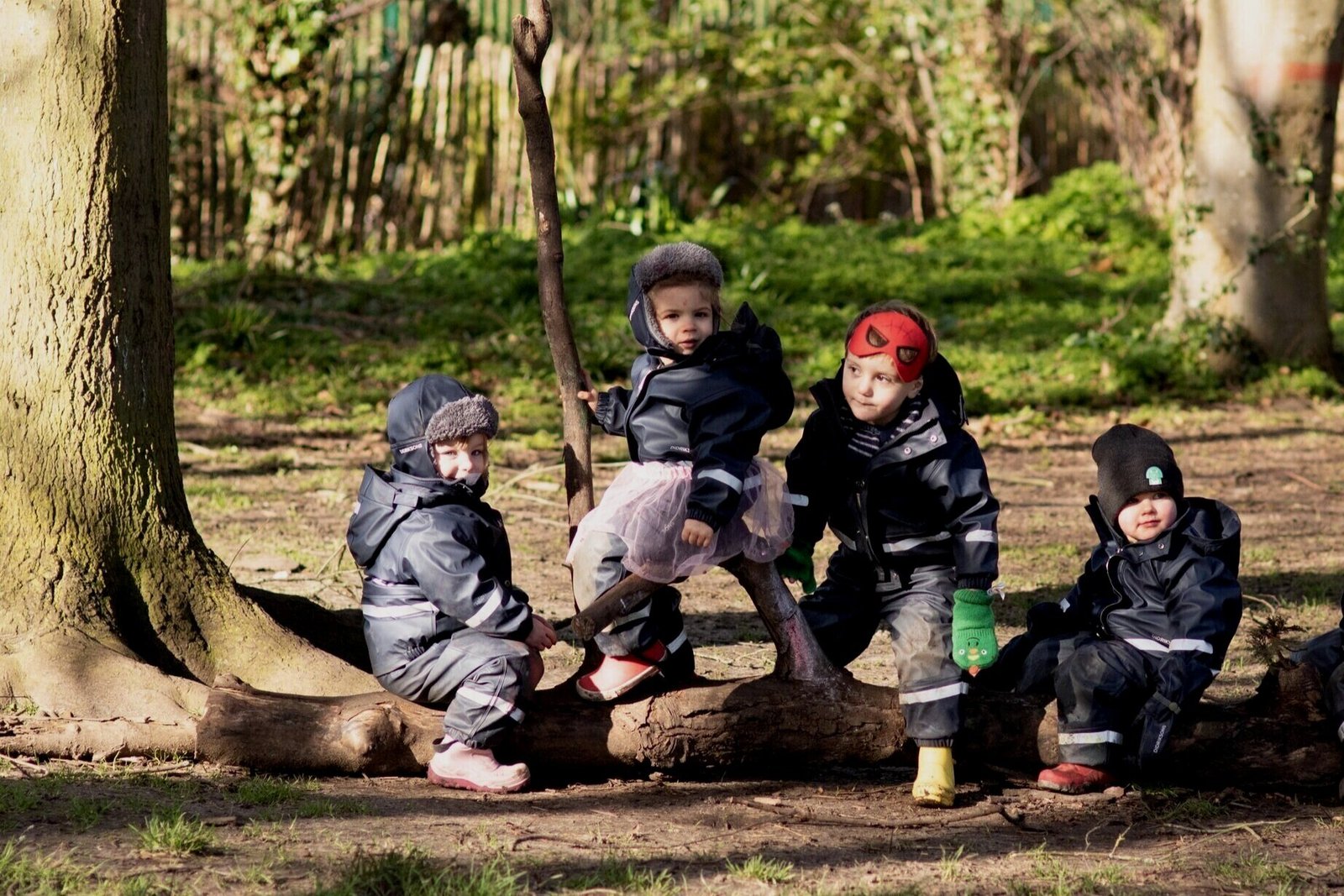
- hygiene (I’ve seen someone pouring water into glasses, collecting them in a stack, then taking and using again, it’s simply no comments);
- temperature (in current circumstances, this is one of our few ways to filter at least a small percentage of sick people – just measure the temperature at the entrance; in addition, it creates a calming effect, at least psychologically; I’ve seen them measuring temperature and not looking at the result, well, or simply not measuring at all);
- health certificate (I was not asked for a certificate of medical examination and vaccination of the child; i was asked to do an antibody test, I did, and wasn’t asked for the result);
- closed windows and time for a walk (I think that ventilation isn’t enough. if the room is warm enough, I see no reason to keep the windows closed; what do we protect our children from? the fresh air? indeed, in some nurseries children don’t go outside at all, in some they go out for just an hour, even when the weather is great);
- toilet (can your child use the existing toilet? mine could not: the pots were too small, the toilets were too big; I had to bring my own pot to the paid nursery);
- food (sugar, salt, tea, bread without butter, suspicious cookies. for what?).
Feedback

In modern nurseries, it’s customary to send parents photo and video reports for the day. Of course, these are carefully selected puzzles of reality, where everyone is just fine. And this is not enough. Therefore, if the nursery doesn’t invite to give a feedback, you should be wary: are they interested in our peace and their own progress?
Parent chats can be a rolling pin in the ass, because not all parents are able to contain a flurry of emotions and verbal diarrhea, but communication between parents and administration is extremely important, it’s the driving force of change. Ideally, there is a one-way chat in which the nursery displays ads, important news and photo reports, and one / two chats where parents can speak up and talk to each other, as well as to the nursery administration, identify problems and respond productivel to them productively.
Our experience, or the story of my mistakes

- search for a kindergarten with a minimum of personal resource (it is unlikely to see a child happily running to meet the unknown, barely remembering to wave bye-bye to you; adaptation requires time and effort, adaptation is stressful for all; a minimum of resources dulls both intuition and hearing);
- readiness of the child (it seemed to me that the child needs socialization, but I did not take into account that there is too much socialization; the child looked at the kindergarten, the child longed for his own kind, the child began to emerge, the mother began to recede and pass as an entertainment provider – mom became not enough, but in the garden there were too many people);
- insistence (if you take your child to nursery every day, talk to them about nursery all the time, read books about nursery, nursery, nursery, the child may perceive this as imposing).
Do your best
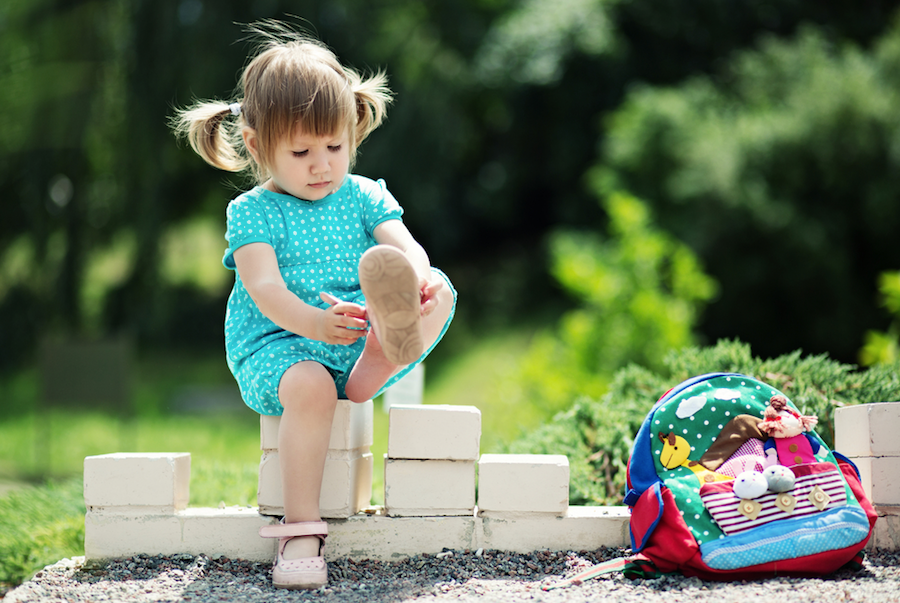
Often parents don’t have the luxury of choosing whether to send their child to nursery or not, nor of choosing which one. However, each of us can do our best to make it easier for the child to adapt, especially through compensation of love, maximum of patience and prior homework.
Skills which may help the child to adapt
- self-dressing (at least partially);
- self-hygiene (toilet, hand washing, use of napkin);
- independent food consumption;
- ability to articulate needs and ask for help (same toilet, hunger, cold);
- ability to articulate emotions;
- the ability to understand the limits and say no.
Books that may help your child to adapt
1. Wimmelbuch about nursery
(PET Publishing House, 2021
For kids who are not yet very friendly with the text)
2. Mouse Tim goes to nursery
Kazalis A., Pero Publishing House, 2019
Part of a series
3. Svitlana Rojz – I’m going to the nursery today
Knyholav Publishing House, 2019
Book with windows
4. Justina Bednarik – Dusya and the piggy Gav. The first day in the nursery
Urbino Publishing House, 2020
Part of the series
